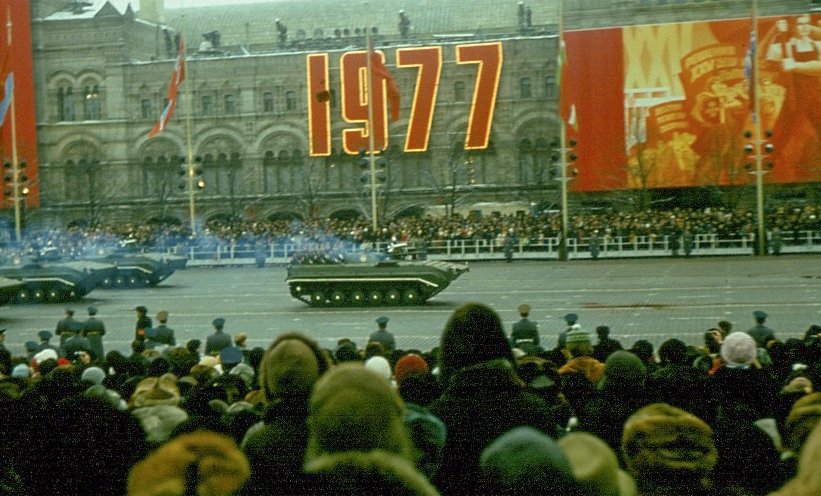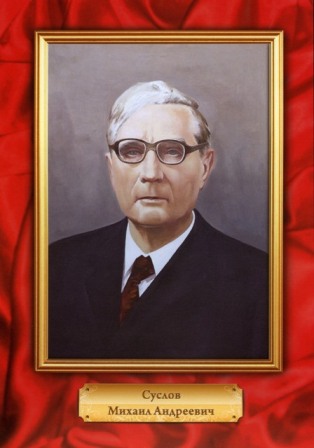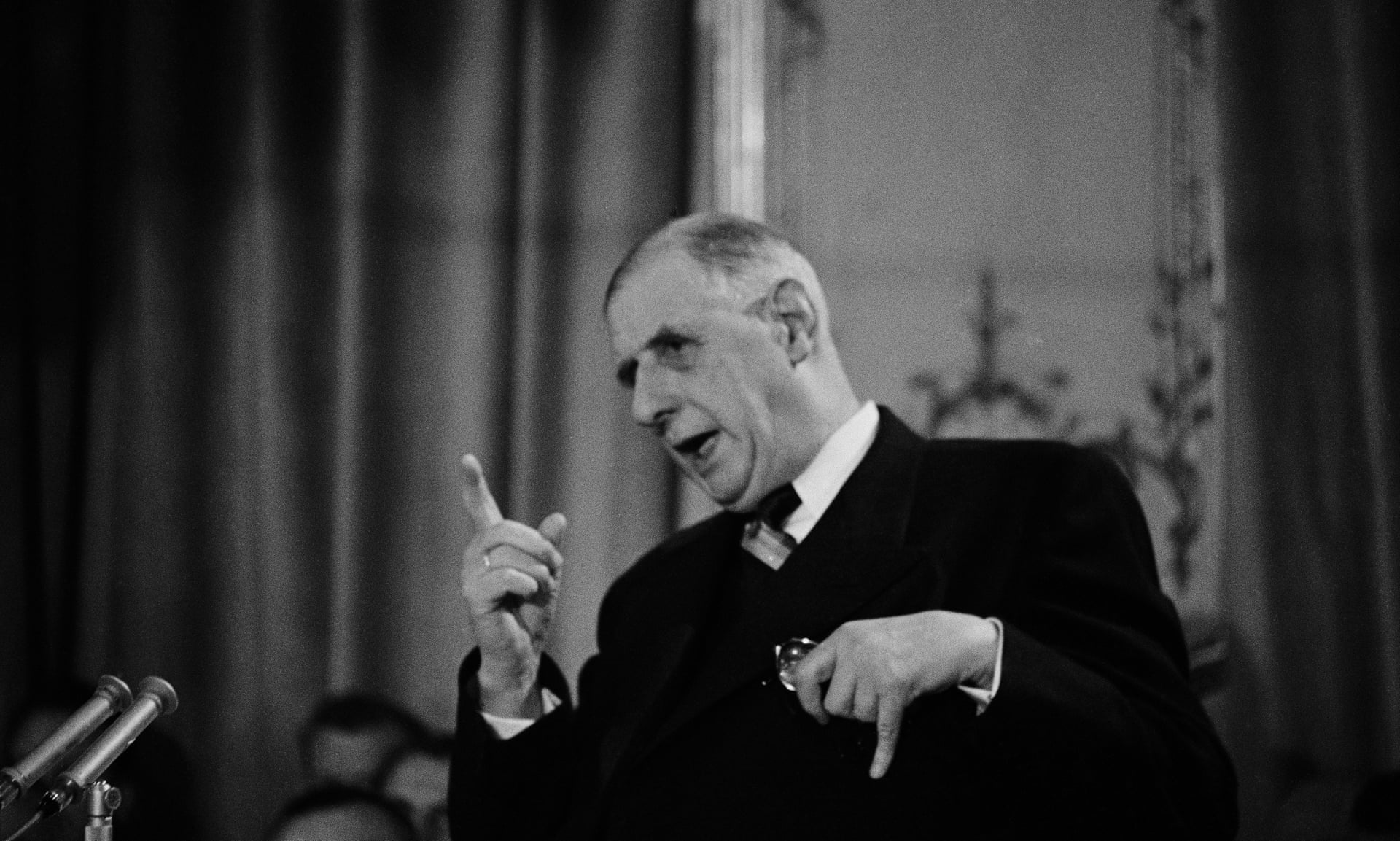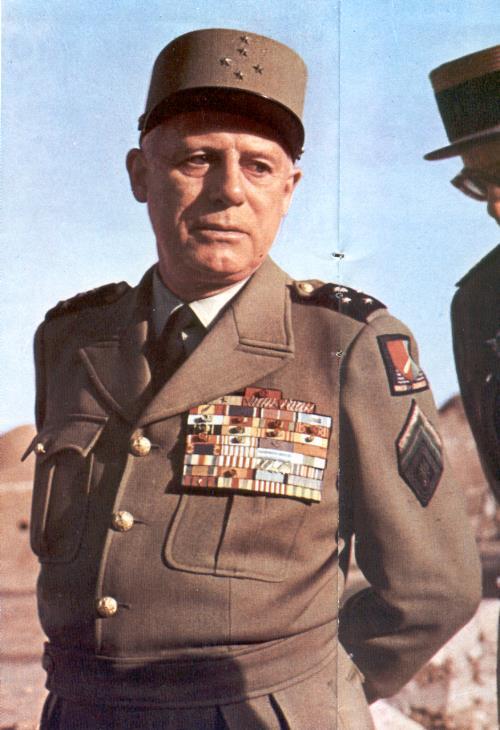Ish-Blloku, Tirana
People's Republic of Albania
It was 3 AM in the morning, the sun not yet risen over the ancient city of Tirana, and the President of Albania was alone at his desk, a blanket wrapped round his shoulders, tapping furiously at his state of the art typewriter. Enver Hoxha considered his writing as foremost amongst his duties as a Marxist-Leninist revolutionary, an opponent of imperialism and anti-revisionism. As the Soviets and the Chinese clearly could not be relied upon to carry on the great tradition of Marx, Engels, Lenin and Stalin it fell to him to give voice to the indignation and fury of the worldwide proletariat against those who would lead them astray. Titoism, Castroism, Khruschevism, he had seen them all for what they really were – false friends, enemies within whose follies and treacheries served the greater enemy. Yet they had not prevented the collapse of the Imperialists, as news flowed in every day of yet another supposedly successful revolution. He knew that Mao, that senile fool who had set his young thugs against the Chinese workers in that so-called “Cultural Revolution”, was busy hailing the dawn of worldwide communism – but Hoxha knew that revisionism in all its form could not be entertained even for a second. In this sense he found himself in reluctant agreement with the Khruschevites, whose response to recent events had been guarded, if somewhat confused and without the clarity that a true Marxist-Leninist perspective brought. The inevitable world revolution was here, that was clear, but this was no reason to let up in the struggle against the enemy within the Communist movement, in fact it called for intensification and escalation of that conflict, lest vast swathes of the world be lost for decades to all manner of revisionist deviations.
The work upon which was underway with must be completed as soon as possible, so that he could present it as a report to the Central Committee and then fast track it for global publication. The Albanian Party of Labour now had definite links to anti-revisionist Parties across the world, and he called upon their own insights in his research into the class and ideological character of the various “Socialist” western regimes. As he emphatically banged out the last few sentences of the current chapter, titled “Modern Revisionism in Power” he decided it was time to review and redraft what he had written. It was only right that he, the premier voice of the Albanian people and the worldwide Marxist-Leninist movement, do his best to ensure the utmost vigour in his ideological output. He shuffled the papers, and turned to the first page of what he was considering titling “Autogestion is Anti-Communism”, or perhaps “A Critique of the French Revolution of 1968.”
First on his agenda was France, home of the Great 1789 Revolution itself, now birthing ground of the many new insidious form of revisionism.
“The French concept of Autogestion is no more than bourgeois utopianism” he had written. Bourgeois? Really, no, that didn’t make enough theoretical sense, grudgingly as he would have to admit it, the bourgeoisie had technically fallen. “The concept of Autogestion is no more than petit-bourgeois utopianism” then, but that also he felt feel short, best to add further clarification to the class character of the autogestionists. “The French concept of Autogestion is no more than petit-bourgeois utopianism, constructed in alliance with the lumpenproletariat, labour aristocracy and revisionist intelligentsia – directed as a weapon of disruption against the French proletariats struggle for socialist construction. Though professing Marxism, the opportunist petit-bourgeois lumpenproletariat regime has through the pernicious ideal of “Autogestion” resurrected the follies of Proudhonism, serving only to preserve those elements of capitalism that the creation of the dictatorship of the proletariat would eradicate. The failure of the genuine proletarian elements in the Council for Maintaining the Occupations to form a true vanguard left a void that was filled by opportunists. These petit-bourgeois student idealists have in fact forged an alliance with the very labour aristocrats in the Khruschevite unions they professed to oppose. The workers who were the true backbone of the 1968 revolution, yet without a true Marxist-Leninist vanguard they have fallen victim to a junta of class enemies and class traitors. The petit-bourgeois student faction has misdirected the proletariats class consciousness and revolutionary disdain for the Fascist government of General Salan and the Khrushecvite Communist Party leadership that replaced it in order to advance their utopian ends, which they present to the world under the banner of “Autogestion”. “
“Attempting to clarify the proper meaning of much French propaganda material that our Party has acquired has proved difficult, for it is equally lacking in serious content as Chinese propaganda is, if not more so. Quixotic slogans like ”demand the impossible”, “boredom is counterrevolutionary” and “power to the imagination” speak more to the juvenile sensibility of poets than to the rigorous Marxist tradition. Much of this verbiage is aimed at justifying the hedonistic fantasies of the petit-bourgeois youth, promoting homosexuality, promiscuity, polygamy and all manner of work-shy, anti-social behaviours that we have eliminated here in Socialist Albania.”
Hoxha was a great fan of literature, and therefore by necessity of the literature of France, and had admittedly enjoyed a few of the works he had studied for his research - yet they were still so far remote from Marxist-Leninist science for his own people to ever be allowed to read them.
Satisfied with his overview of the French, he turned from the organ grinder to its monkey, the so-called “Federal Commune” of Germany. This presented an awkward prospect, since the primary alternative to the Federal Commune was the DDR, a Khruschevite puppet state. Yet loathe as he was to defend the DDR, and seemingly oppose German reunification, there was no doubt in his mind that the Federal Commune was first and foremost a extension of French influence, and that the West Germans were the frontline soldiers of the North-West Alliance against the East.
“The revisionists of France true anti-Communist colours are nowhere more evident than in their support for the Rudi Dutschke and his revanchist petit-bourgeois social fascist regime, whose calls for the reunification of Germany to be considered a “National Liberation” struggle not only misapply proper Marxist-Leninist understanding of modern Imperialism but echo Hitlerisms desire for a “Greater Germany”. Yet despite his Fascist leanings Dutschke is truly the prophet of the new French revisionist Imperialism, the new rival to the Social Imperialism of the Soviet bloc. Dutschke also misapplies legitimate criticism of the Khruschevites to divert the masses away from true Marxist-Leninism towards his infantile, romantic brand of “socialism” that entirely focuses on the struggles of the “individual” against “the state”, and abandons class struggle entirely.”
Was the term "Hitlerism" perhaps too antiquated? Best simply refer to him as a Fascist.
Now for North America, for now a chaotic and withdrawn shadow of the great bulwark of Western-Imperialism, but which was showing worrying signs of been drawn back onto the world stage in support of the various revisionist states of Europe - and of indulging an alliance with the Chinese.
“The leadership of UPNA, too, while exhibiting some of the outward characteristics of Marxist-Leninism, are primarily romantic opportunists who have been negatively influenced by Castroism, Maoism and the example of the bandit Che Guevara. Though all must salute their heroism in dealing the death blow to the old US Imperialism, they have completely failed to establish a true Vanguard party, instead pitting a mish-mash coalition of petit-bourgeois nationalist groups, liberal and social democratic renegades, romantic, idealist, non-Marxist student organisations, Clerical Socialist cults and terrorist organisations against the Fascist LeMay, whose fall would have surely been inevitable even without the so-called Rainbow Coalition. As in France and the Federal Commune, true socialism has yet to be established in any meaningful sense. The failure to apply the principles of Democratic Centralism has allowed counter-revolutionary elements to openly flourish, both threatening the existence of the current petit-bourgeois opportunist government and presenting grave barriers to the advancement of the genuine Marxist-Leninists within the American proletariat.”
Now for Britain, now far from the world power it once was, but which presented an intolerable ideological insult to the Marxist-Leninist tradition. Hoxha himself found himself even more angry than usual with British revisionism than any other, if only because it dared resemble true Marxist-Leninism so much more closely than that of the other Western revisionists.
“In Britain, the true face of the Trotskyites was revealed in their brazen misuse of the principles of true democratic centralism to expel real Marxist-Leninists from the Labour Party, while maintaining a shameful opportunistic alliance with the Social Fascist Tony Benn and the Fascist racialist demagogue Enoch Powell. Though it has eschewed the false dogma of Autogestion, in truth market socialism, in truth petit-bourgeoisie social fascism, it has been forced by the genuine Marxist-Leninist opposition in the Supreme Council of Action into adopting the outward trappings of a planned economy. Yet we in the Albanian Workers Party cannot stand by while the Trotskyites in Britain attempt to confuse and beguile the workers with a false historical narrative that defames the great Comrade Stalin’s achievements in socialist construction and battling Fascism. Without Comrade Stalin, the world revolution of today would surely have been impossible, yet like the Khruschevites the slanderers of London spit poison in the face of Lenin’s greatest disciple and conceal the infamous treacheries of Trotsky from the British working class. We can have no doubt that Tony Cliff, the supreme slanderer of the London Trotskyite gang, knows in his heart the falsity of his libels against Comrade Stalin and the well-documented reality of Trotskyite infamy, yet continues to spill ink in the cause of falsehood in order to turn the British working class away from the greatest leader of the British proletariat, the courageous and indefatigable Comrade Birch. Comrade Birch, who has organised the expelled Marxist-Leninists into a genuine Labour Party, has directed the vanguard of the British revolution with great integrity despite the best efforts of the London Trotskyite gang to defame him and of certain misguided Maoist factionalists to undermine his leadership. Only Comrade Birch has boldly spoken for the suppression of fascist parties allowed by the London Trotskyite gang to organise openly against the proletariat, and for the construction of British socialism according to objective Marxist-Leninist standards as set out by the immortal writings and praxis of Marx, Engels, Lenin and Stalin. He has opposed the neo-Bonapartist Imperialism of France, advanced under the banner of Pan-Europeanism and of bourgeois separatism, and has explicitly condemned the anarchist terrorism that threatens very lives of British proletarians while the London Trotskyite gang dithers.”
Now, that the enemies folly has been fully described, Hoxha turned to the inspiring restatement of the the necessity and truth of the Albanian position, the one light of true Marxism in the world. Those within Albania who might dare show sympathy for some kind of anti-Soviet alliance with the Westerners, or reconciliation with the Soviets or Mao against the West, must be informed without delay that the dawn of (near) global socialism did not change anything. Albania must stand alone against a world of revisionism, even against the whole world, if necessary - as Lenin and Stalin had.
“We here in Albania must take courage from the example of our Marxist-Leninist comrades in the revisionist West, and not allow the anti-Soviet swan-song of the North West-Alliance, nor their hollow denunciations of the South-West Alliance, blind us to their own insidious form of anti-Socialist revisionism. Under the banner of “Autogestion” the North-West Alliance, a Social Imperialist cabal that carries on the blood stained tradition of NATO, attempts to smuggle individualism, utopianism, idealism and libertine homosexuality into the global workers revolution against capitalism, fascism and Imperialism. Nor should we allow our revulsion at the decadent falsities of the Modern Revisionists make us forget the necessity of opposing the Social Imperialism of the Khruschevites, who know face the true consequences of their irresponsible and false libels against Comrade Stalin and abandonment of Marxist-Leninist principles. Had the Soviet Union the Peoples Republic of China offered true socialist leadership to the global proletariat, then the modernist revisionists would surely have been swept aside – yet the price of revisionism is revealed, and places the fate of socialist humanity in grave jeopardy. Though we are mocked as a small nation, we in Socialist Albania know that our struggle is not fruitless, that our example and our teachings shall reach the proletariat of the world, and inspire them to continue the tradition of Marx, Engels, Lenin and Stalin that has triumphed throughout history again and again.”





